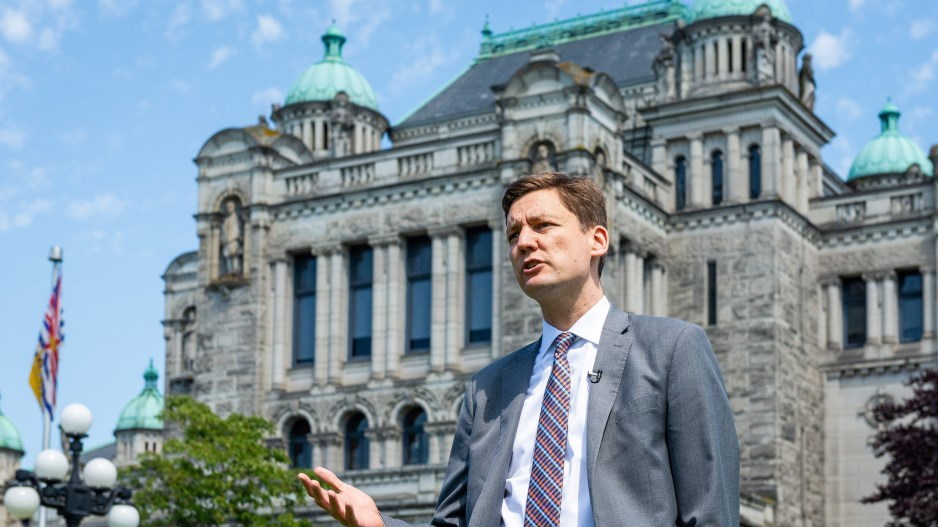When David Eby became B.C. premier back in November, it was widely assumed he would have a hard time coming even close to the popularity levels enjoyed by his predecessor, John Horgan.
However, two polls released last week indicate that (for now anyways) Eby is doing just fine when it comes to job approval ratings.
In fact, the polls ― one by Research Co. and the other by Leger ― both suggest Eby and his BC NDP government enjoy considerably more support among voters than either of the opposition parties.
The Research Co. poll pegs Eby’s approval rating at 59 per cent. The Leger poll has it at 49 per cent. Both are relatively high numbers.
Despite the BC NDP government fending off controversy after controversy ― a lack of family doctors, crowded emergency rooms, closed ERs, public safety incidents, the ongoing toxic drug crisis ― the public appears to have little interest in any other party running the province.
The Leger poll gives the ruling NDP a whopping 16-point lead over the BC Liberals among decided voters (47 per cent to 31 per cent). The Research Co. showed a smaller gap of eight points, but still a significant lead for the NDP (44 per cent to 36 per cent).
All in all, the polls are encouraging news for the governing party and its new leader, and very discouraging findings for both the BC Liberals and the BC Green Party.
BC Liberal leader Kevin Falcon, in particular, must be disappointed and frustrated how Eby seems to be connecting with the public with greater success than his own efforts.
Research Co. asked respondents to rate the leaders on eight separate issues.
Eby beat Falcon by small margins of four to six points on three issues: crime and public safety, energy and the economy and jobs.
However, Eby scored more decisive advantages (13 to 19 points) on five other issues, including two key ones (health care and housing/affordability).
One of Falcon’s biggest challenges is becoming known to British Columbians, but there are signs that he may be gaining some ground. While the Leger poll put his approval rating at just 31 per cent, Research Co. pegged it at 44 per cent, an increase of eight points from the fall.
Still, the polls show the BC Liberals have considerable work ahead of them if they want to be competitive with the BC NDP. The Research Co. poll in particular shows the depth of the problem ― it gives the NDP a 13-point lead in the Fraser Valley region, usually an area of BC Liberal strength.
Of course, polls are simply snapshots in time, and the next election is not for a long time yet (currently set in law for October 2024 unless Eby calls an early one, which he has promised he will not do).
Eby has been leader for just three months, and lots can go wrong between now and the next vote.
But for now, Eby and his crew must like what they see in these most recent measurements of public opinion. The new guy seems to be off to a surprisingly good start.
Keith Baldrey is chief political reporter for Global BC.




